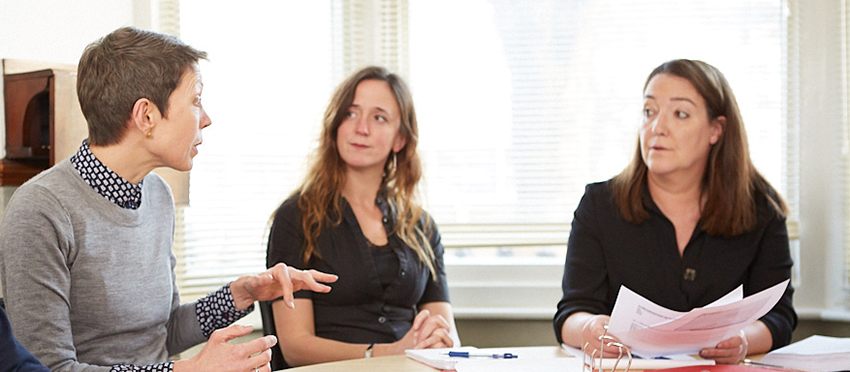Case Study: Representing a client in Court of Protection Health and Welfare proceedings to uphold the client’s Best Interests

How Cate Searle, Community Care Law solicitor based in our Brighton solicitors’ office, represented a client in Court of Protection Health and Welfare proceedings to overturn a decision that the client could not have contact with her close friend.
The situation
Mary is 78 years old and her friend Catherine is aged 85; they lived nearby one another in a town in the North East of England. They had been very close friends for over 40 years, and saw each other every day. Catherine has a number of health problems, including early stage dementia. Mary provided care and support to Catherine, arranging medical appointments and taking her there, also shopping and outings and so on. Catherine’s daughter, Helen, is her Attorney for Health and Welfare. Helen and Mary have never seen eye to eye about what type of care Catherine required, and Helen felt that Mary spent too much time with Catherine and was always interfering.
Catherine had two emergency admissions to hospital; Mary was not allowed to visit her due to Covid restrictions, but they kept in touch by phone. While Catherine was in hospital the second time, Helen had meetings with health and social services and a decision was made that instead of Catherine going back to her home, she would move to a care home on a temporary basis. This was partly to create time to find a care at home package for Catherine, but also because Helen and the professionals had decided that Mary was a disruptive influence upon Catherine. Helen and the professionals also made a decision that Mary would not be told which care home Catherine was moving to; that Catherine’s phone would be removed so that the two women could not speak; and that there would be no contact of any form between them. Catherine was moved to the care home under a Deprivation of Liberty Safeguards authorisation because it was felt that she lacked capacity to make her own decisions about where she lives and is cared for. Mary is of the view that Catherine still has mental capacity to make such decisions, provided that she has sensitive support to understand the options.
Mary was deeply upset that no one would tell her where Catherine was living or how Catherine was. She received a letter from Helen’s solicitor telling her that Helen would take court action against her if she tried to interfere with Catherine’s care home placement, and that Social Services had made the decision to ban contact.
What Martin Searle Solicitors did
Cate advised Mary that it did not seem to be in Catherine’s best interests to ban her contact with her oldest friend, even if Mary had got things wrong in the past by “caring too much”. Cate believed that both Helen and Social Services had not followed the Mental Capacity Act Best Interest process about the least restrictive option for Catherine – for example, supervised contact visits until potential risk was assessed and things could get back to normal. Cate was also very concerned that Helen and Social Services were preventing Catherine from being cared for at home.
Cate corresponded with Helen’s solicitor and Social Services and set out why their decisions were not in Catherine’s best interests. She suggested that there should be a Round Table Meeting and also that Helen or Social Services should refer Catherine’s case to the Court of Protection (CoP): they refused all Cate’s suggestions and refused to agree contact. Cate sent a pre-action letter advising that she would make an urgent application to the CoP about Catherine’s contact and her residence. The CoP dealt with the application within 48 hours, setting out directions about who needed to do what to progress the case. Cate had argued that Helen could not be her mother’s Litigation Friend as there was a clear conflict of interests due to her dislike of Mary. The Court agreed and asked the Official Solicitor to represent Catherine.
The parties eventually agreed to have a Round Table Meeting and at that meeting, Helen, Social Services and the care home agreed that Mary could have trial contact visits to Catherine. At the first CoP hearing, the Judge was critical of Helen and Social Services for banning contact, for not looking at the care at home option for Catherine and for failing to put the matter before the CoP themselves. The Official Solicitor supported contact.
The result
Mary and Catherine now have contact and the parties are dealing with a timetable of directions to have an independent assessment of Catherine’s mental capacity to make welfare decisions, and to allow the Court to decide if she should be cared for at home.
For expert advice on mental capacity and Best Interests decision making, contact our Community Care law team on 01273 609911, or email info@ms-solicitors.co.uk.


